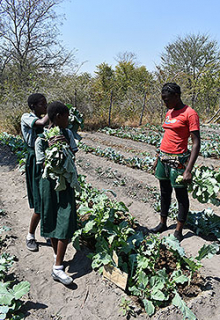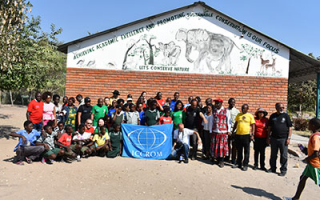Start date: 14 August 2018
End date: 24 August 2018
Location: Victoria Falls/Mosi-oa-Tunya WH site in Zambia
Number of Participants: 20
Nationalities: 14
Executive Summary
This new flagship course “PNC18 (People, Nature, Culture)” of the WHL programme has emerged as a response both to greater recognition of the dynamic role of heritage in sustainable development and growing concerns over the divide between nature and culture in heritage management. It brings together and builds on the success of two previous courses that ICCROM has run, also in partnership with IUCN: “Linking Nature and Culture in World Heritage Site Management” and “People Centred Approaches: Engaging Communities in the Conservation of Nature and Culture.”
The first African regional course on “Promoting People Centred Approaches to Conservation of Nature and Culture” (PNC18) was organized by ICCROM and IUCN with the Norwegian Ministry of Climate and Environment and the African World Heritage Fund. It was held at the Victoria Falls/Mosi-oa-Tunya World Heritage Site in Zambia from 14 to 24 August 2018.
The course provided a unique opportunity for 20 participants from diverse backgrounds, representing 16 African countries, to interact with numerous resource people (international and national) who shared their experiences managing natural and cultural heritage. The course balanced the number participants and instructors from the natural and cultural sectors to ensure both sectors were represented.
The course created a platform for networking among conservation practitioners from across the natural and cultural heritage sectors across the region, who share many common issues. Feedback from the participants and the course evaluation indicated a very high level of satisfaction.
The course focused on providing participants with the knowledge, skills, and awareness necessary to work with diverse people and values when managing heritage places, including World Heritage. It also promoted long-term networks for life-long peer learning and enhanced capacity building in the heritage sector.
Moreover, the outcomes of this course, along with other initiatives within the World Heritage Leadership programme, contributed to consolidating people-centred approaches and nature-culture linkages throughout World Heritage processes.


